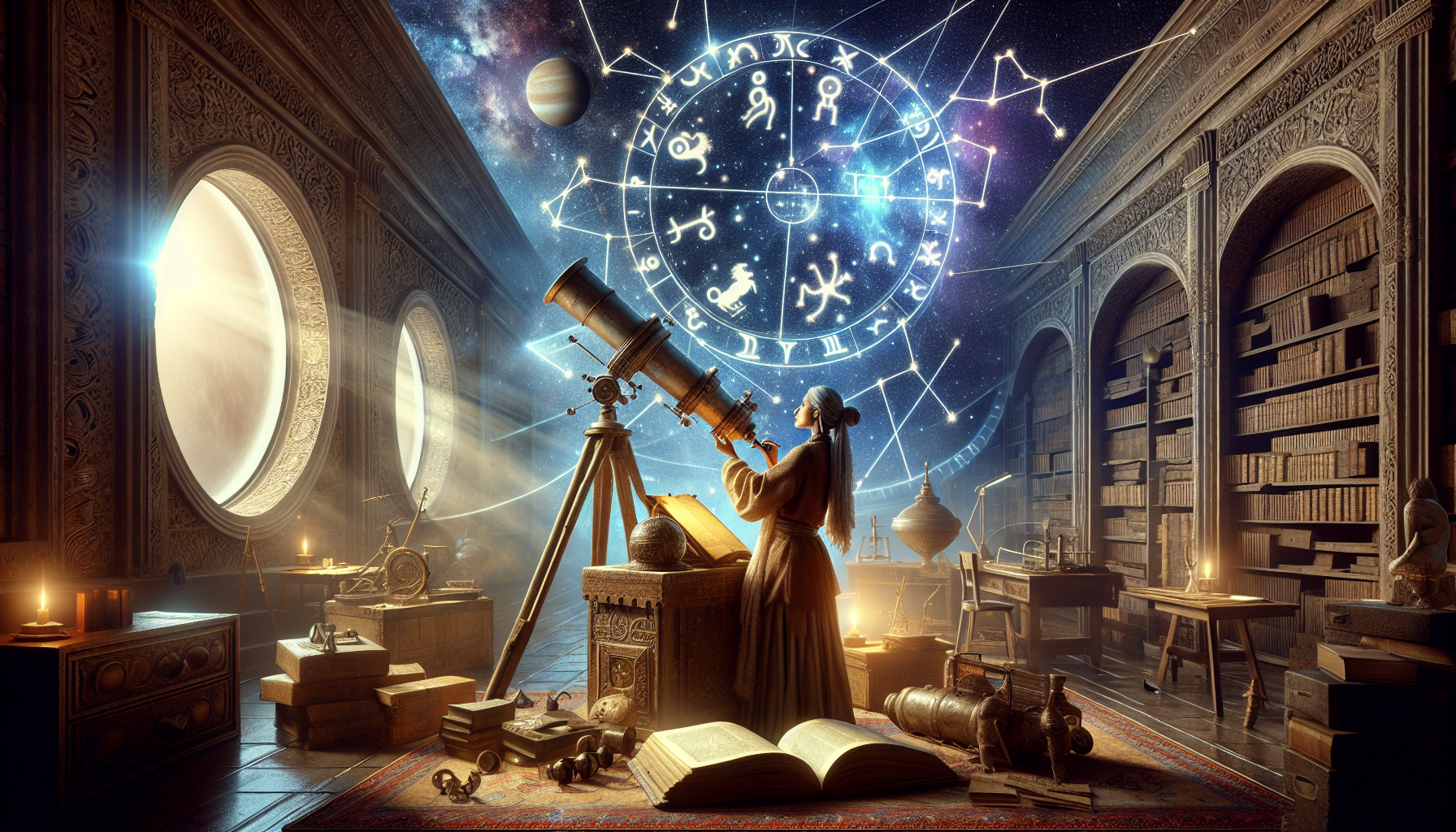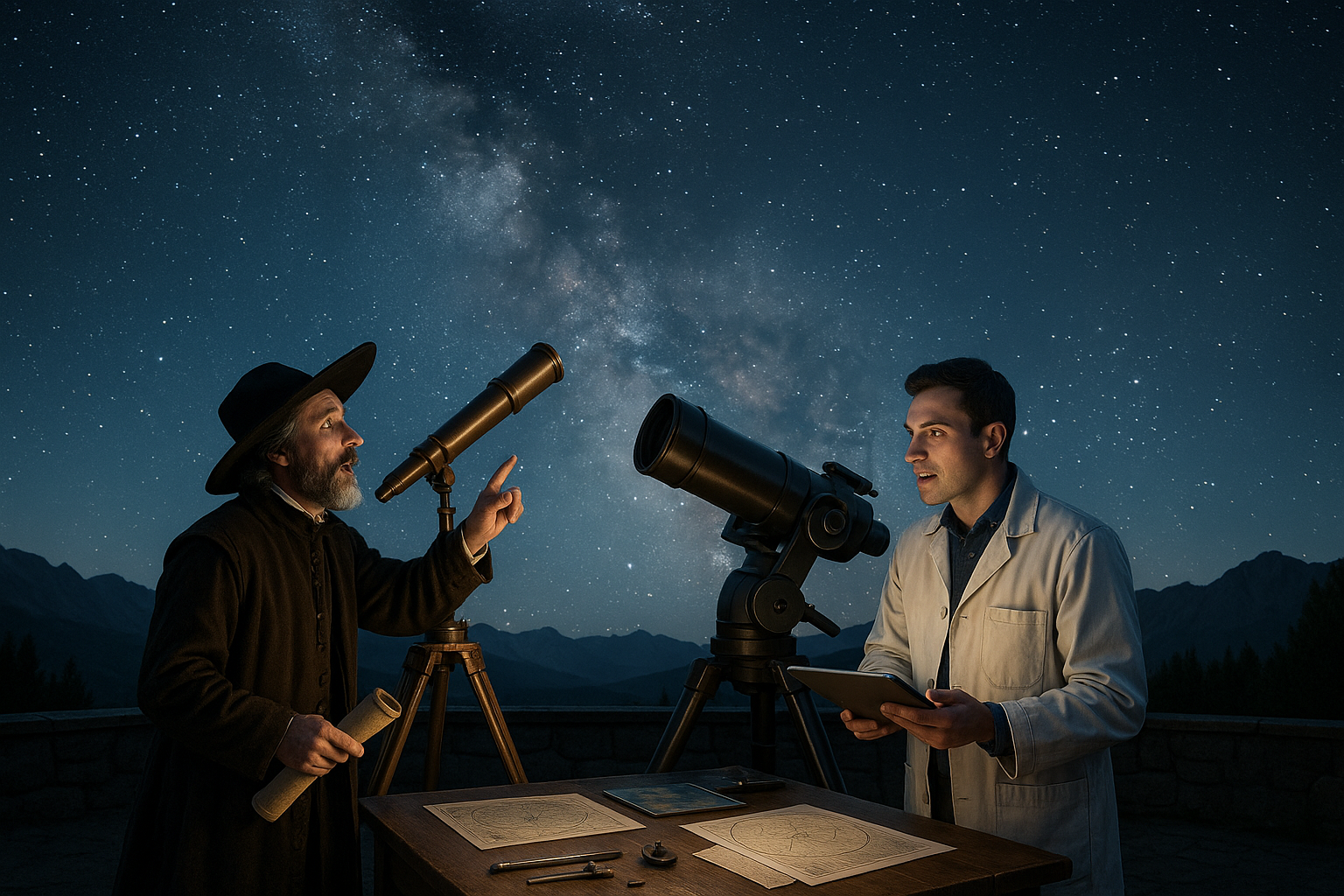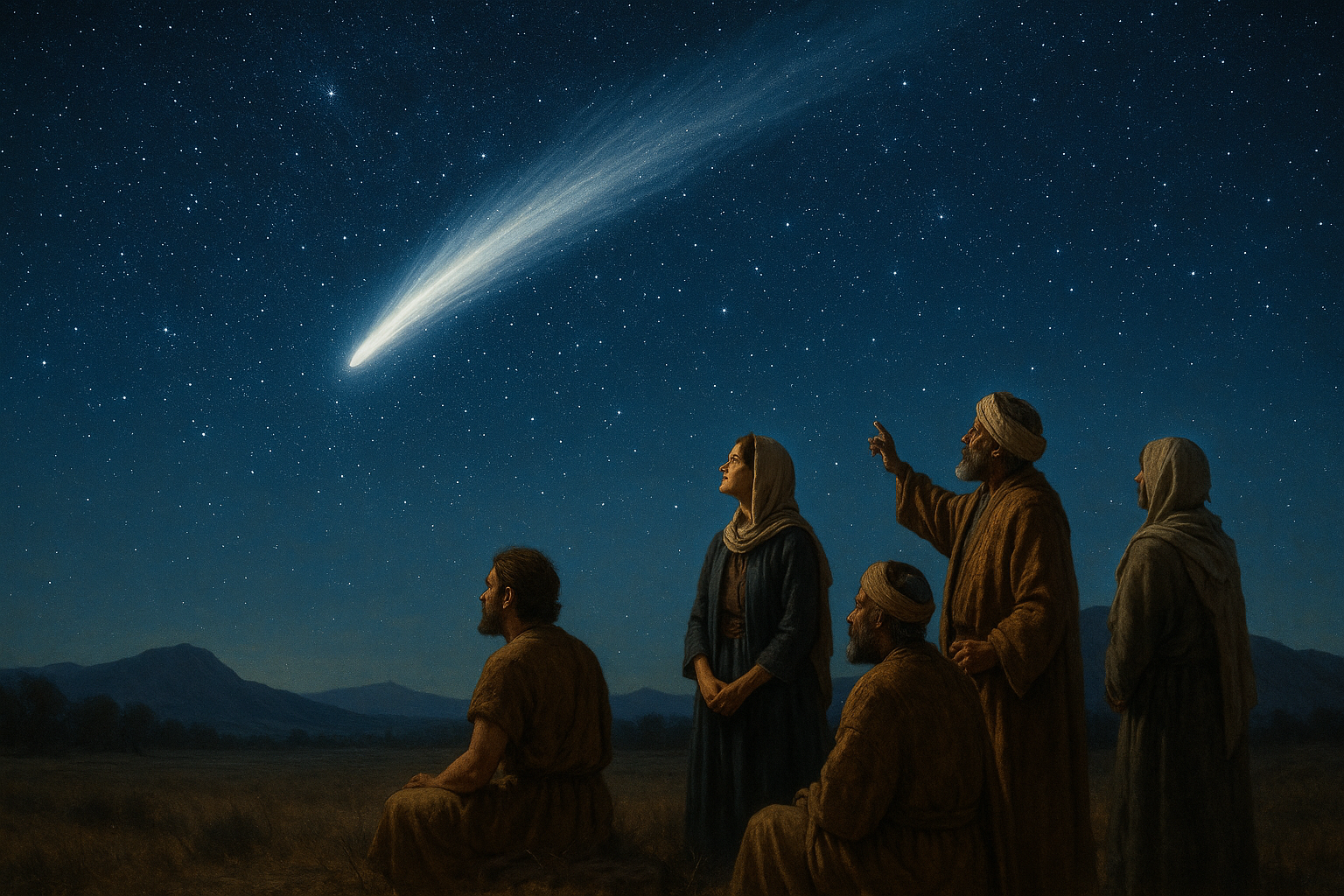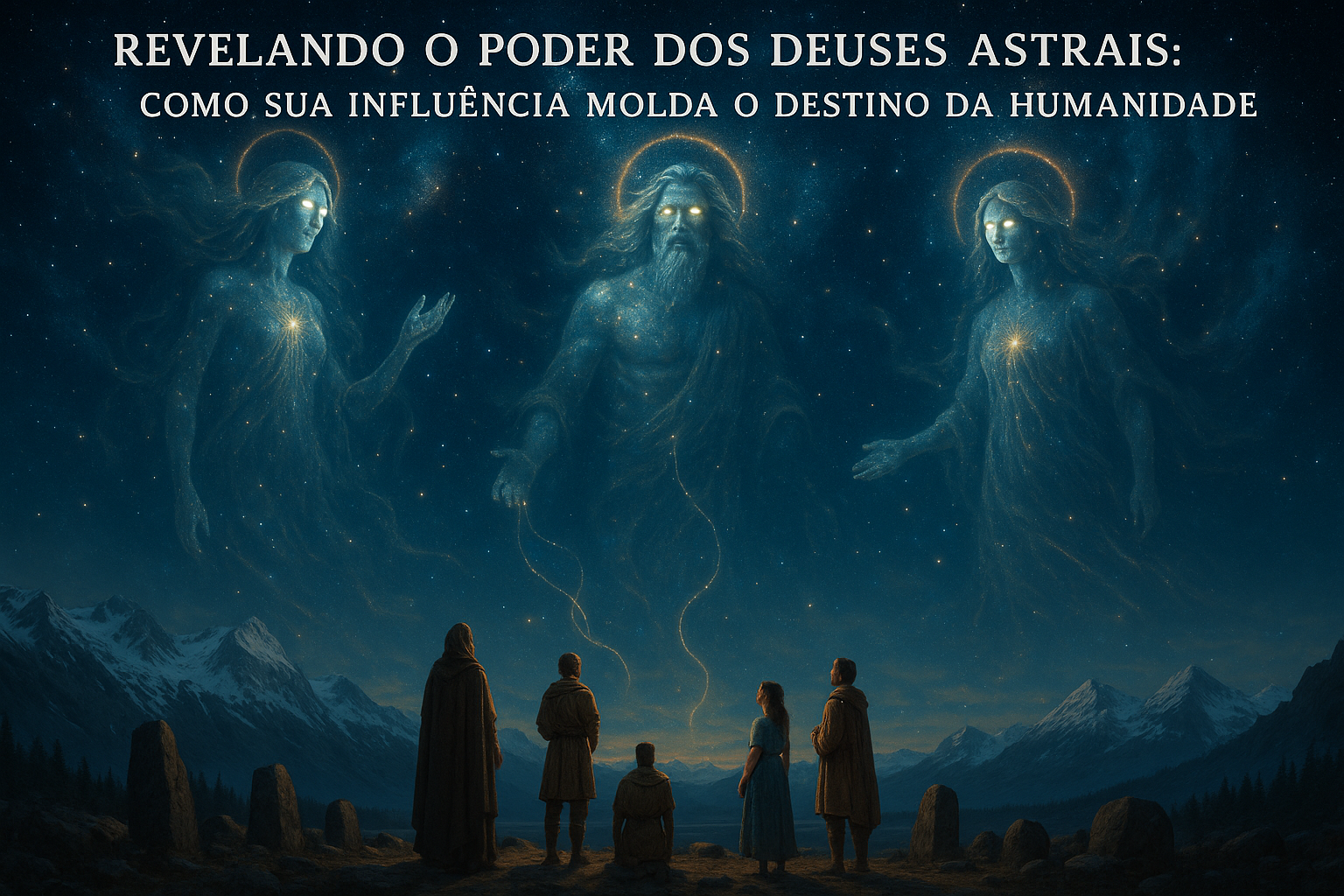For centuries, humans have gazed up at the night sky, captivated by the twinkling lights of distant stars. This celestial canvas has not only inspired awe but also curiosity about our place in the universe. From the dawn of civilization, people have sought to understand these cosmic wonders, leading to the birth of astrology—a complex system that seeks to unravel the mysteries of the heavens and their influence on human life. But how did this ancient practice begin, and what role does it play in our modern world? Join us on a fascinating journey through time as we unlock the secrets of early zodiac systems, exploring the origins of astrology and its enduring impact on contemporary society. ✨
The story of astrology is as old as civilization itself. Thousands of years ago, early societies began to develop zodiac systems, using the positions and movements of celestial bodies to gain insights into earthly events. These early astrologers meticulously charted the stars and planets, developing sophisticated systems that laid the groundwork for the zodiac signs we recognize today. In this article, we delve into the ancient origins of astrology, tracing its evolution across different cultures, from the Mesopotamians and Egyptians to the Greeks and Romans. By examining these early systems, we can gain a deeper understanding of how astrology has shaped human thought and behavior throughout history.
As we unravel the threads of astrology’s past, we also explore its profound influence on modern society. Despite living in an age of scientific advancements, astrology remains a popular and controversial topic. Many people turn to their horoscopes for guidance, seeking insights into their personalities, relationships, and futures. In this exploration, we will examine the psychological and cultural factors that contribute to astrology’s enduring appeal, as well as the criticisms and skepticism it faces in the scientific community. By understanding these dynamics, we can appreciate the complex role astrology plays in shaping contemporary beliefs and practices.
Finally, we will consider the future of astrology in an ever-evolving world. As technology advances and our understanding of the universe deepens, how will astrology adapt to these changes? Will it continue to captivate the human imagination, or will it fade into obscurity? By examining the current trends and innovations within the field, we can speculate on the potential directions astrology may take in the years to come. So, fasten your seatbelts and prepare for an enlightening journey through the cosmos, as we unlock the mysteries of early zodiac systems and uncover the ancient origins of astrology and its lasting influence on modern society. 🌌
The Dawn of Astrology: Tracing the Origins of Zodiac Systems
Astrology, the study of celestial bodies’ movements and their influence on human affairs, has intrigued civilizations for millennia. Its roots trace back to ancient cultures where the observation of stars, planets, and other celestial phenomena was not only a pastime but a serious endeavor that guided daily life, decision-making, and understanding of the universe. The early zodiac systems, which form the backbone of astrological practices, emerged from a complex interplay of myth, science, and culture.
The Babylonian civilization, flourishing around 2,000 BCE, is often credited with the earliest zodiac signs. Their zodiac comprised 18 signs, many of which are still recognizable today, such as Leo and Taurus. The Babylonians meticulously recorded celestial events, creating a detailed star catalog that laid the groundwork for subsequent astrological systems. This catalog was later refined by the Greeks, who reduced the number of signs to 12, aligning them with the lunar calendar’s months.
Astrology’s influence spread across cultures, with each society adapting and evolving the basic principles to fit their unique worldviews. The Egyptians, for instance, introduced the concept of decans, which further subdivided the zodiac signs, enhancing the complexity and precision of astrological readings. Meanwhile, the Chinese developed a lunar-based zodiac system with 12 animals, integrating elements of philosophy and religion. This cross-cultural exchange enriched astrology, turning it into a vibrant tapestry of interconnected ideas and beliefs.
Understanding Ancient Astrological Practices
To fully grasp the impact of early zodiac systems, one must delve into the specific practices and beliefs that shaped them. In Babylon, astrology was intertwined with religion and politics, serving as a tool for priests and rulers to forecast events and maintain societal order. The Babylonians believed that celestial bodies were manifestations of gods, and their movements signaled divine intentions. As such, astrology was an essential component of their theocratic governance.
The Greeks, on the other hand, approached astrology with a more philosophical lens. Influenced by the teachings of Plato and Aristotle, Greek astrologers like Ptolemy and Hipparchus viewed the zodiac as a cosmic reflection of earthly affairs. They introduced the concept of horoscopes, using the position of the sun, moon, and planets at an individual’s birth to predict personality traits and life events. This personalized approach made astrology more accessible and relevant to the general populace.
In India, astrology, or Jyotish, developed into a sophisticated science deeply rooted in Hindu cosmology. The Vedic zodiac, which closely resembles the Western zodiac, is part of a broader framework that includes predictive techniques and remedies for mitigating unfavorable planetary influences. Indian astrology emphasizes the karmic implications of celestial movements, linking one’s fate to past actions and spiritual evolution.
Astrology’s Role in Shaping Human Culture
The impact of astrology extends far beyond individual horoscopes. It has played a pivotal role in shaping art, literature, and science throughout history. In the medieval Islamic world, astrologers were highly esteemed for their knowledge of mathematics and astronomy, contributing significantly to the scientific revolution. The works of scholars like Al-Biruni and Ibn al-Haytham laid the groundwork for modern astronomy and optics.
During the Renaissance, astrology experienced a resurgence in Europe, influencing artists and writers who sought to harmonize classical wisdom with contemporary ideas. Figures like Dante and Shakespeare wove astrological symbolism into their works, reflecting the era’s fascination with the cosmos. The alignment of planets and stars became metaphors for destiny, fortune, and the human condition.
Today, astrology remains a cultural phenomenon, with millions worldwide turning to horoscopes and astrological charts for guidance and insight. Its enduring appeal lies in its ability to offer a sense of connection to the universe, providing comfort and perspective in an increasingly complex world.
Modern Interpretations and Influences
In modern society, astrology has evolved into a multifaceted discipline that embraces both traditional methods and contemporary innovations. The digital age has revolutionized how astrological information is disseminated, with online platforms and mobile apps offering personalized readings at the click of a button. Social media has further popularized astrology, making it a communal experience where enthusiasts share insights and predictions.
The resurgence of interest in astrology is partly attributed to the growing trend towards spirituality and self-discovery. As people seek alternative ways to understand themselves and navigate life’s challenges, astrology provides a framework for reflection and growth. The integration of psychological concepts into astrological practice has also enhanced its relevance, with many practitioners using astrology as a therapeutic tool.
Moreover, the scientific community’s interest in astrology has not waned entirely. While mainstream science often dismisses astrology as pseudoscience, the study of astrobiology and the search for extraterrestrial life echo the ancient quest to understand humanity’s place in the universe. The dialogue between astrology and science, though contentious, continues to inspire curiosity and exploration.
Comparative Analysis: Ancient vs. Modern Astrology
To appreciate the evolution of astrology, it is essential to compare its ancient origins with contemporary practices. Below is a table highlighting key differences and similarities between ancient and modern astrology:
| Aspect | Ancient Astrology | Modern Astrology |
|---|---|---|
| Purpose | Religious and political guidance | Personal insight and self-discovery |
| Methodology | Observational, based on celestial events | Analytical, integrating psychological concepts |
| Tools | Star charts, celestial calendars | Online platforms, mobile apps |
| Influence | Cultural and artistic expression | Popular culture and media |
As you can see, while the core principles of astrology remain consistent, the methods and applications have adapted to suit changing societal needs. This adaptability underscores astrology’s resilience and its capacity to evolve alongside human culture.
For a deeper understanding of astrology’s ancient roots, you might want to watch this insightful YouTube video: The Ancient Origins of Astrology by History Channel. This video delves into how astrology shaped ancient civilizations and its enduring legacy today. 📜

Conclusion
In conclusion, our exploration of the early zodiac systems has unraveled the profound intricacies of ancient astrology, shedding light on its enduring influence on modern society. This fascinating journey through time reveals how civilizations across the globe, from the Babylonians to the Greeks, meticulously observed the stars and planets, weaving these celestial bodies into the fabric of daily life and spiritual belief. Understanding the ancient origins of astrology allows us to appreciate how deeply embedded these practices are in human culture and how they have evolved to shape modern thought.
The article began by examining the cradle of astrology in Mesopotamia, where the Babylonians laid the foundational blocks of zodiacal signs that have persisted through millennia. Their meticulous observations and mathematical prowess facilitated a structured approach to celestial phenomena, influencing subsequent cultures that embraced and refined these astrological concepts. This segment underscores the timeless nature of human curiosity and our innate desire to find meaning in the cosmos, establishing astrology as a critical component of early scientific endeavor.
We then navigated through the Hellenistic period, where Greek philosophers and scholars like Ptolemy synthesized Babylonian, Egyptian, and Greek thought, producing works that further defined astrological practice. Their contributions not only solidified the zodiac signs we recognize today but also set the stage for astrology’s integration into medical, psychological, and philosophical discourses. The synthesis of these cultural insights demonstrates the cross-pollination of ideas that enriched astrological knowledge, underscoring its role as a bridge between diverse intellectual traditions.
As we ventured into the Middle Ages and the Renaissance, astrology’s transformation into a scholarly pursuit highlighted its adaptability and resilience. Astrologers of this era, often regarded as proto-scientists, contributed significantly to the development of astronomy and mathematics. Their efforts exemplify the intricate balance between mysticism and empirical observation, offering a unique perspective on the historical interplay between science and spirituality.
In modern times, astrology has transcended its ancient roots, evolving into a popular cultural phenomenon that continues to captivate individuals worldwide. Its resurgence in contemporary society, facilitated by digital platforms and social media, reflects a renewed interest in self-exploration and existential inquiry. This ongoing fascination with astrology invites us to question the very nature of belief and knowledge, encouraging a dialogue between tradition and innovation.
The enduring influence of astrology is not merely a testament to its historical significance but also an invitation to explore the depths of human consciousness and our relationship with the universe. By unlocking the mysteries of early zodiac systems, we gain valuable insights into the cultural and intellectual legacies that continue to shape our understanding of the world. This exploration also prompts us to consider how these ancient practices can inform our modern perspectives on identity, destiny, and interconnectedness.
In light of these revelations, the importance of studying the historical and cultural contexts of astrology becomes abundantly clear. By delving into the past, we are better equipped to navigate the complexities of the present and future, fostering a more profound appreciation for the rich tapestry of human thought and creativity.
As we conclude this exploration, I encourage you to reflect on the insights gained and consider how they resonate with your personal beliefs and experiences. Whether you approach astrology as a tool for self-reflection, a lens for understanding history, or simply a source of curiosity, its multifaceted nature offers something for everyone. Share these discoveries with others, engage in meaningful conversations, and explore how the ancient wisdom of astrology can illuminate your path in the modern world. ✨
For those interested in delving deeper into the historical aspects of astrology, consider exploring resources like the British Museum’s collection on Babylonian astrology or the University of Cambridge’s resources on Greek astronomy and astrology. These platforms offer a wealth of information to further enhance your understanding of this fascinating subject.
Thank you for joining us on this enlightening journey through the stars and time. We hope it has inspired you to look to the heavens with renewed wonder and to seek out the connections that bind us across time and space. 🌌
- Discover the origins of the zodiac signs and their cultural significance.
- Explore how astrology shaped historical and modern societies.
- Understand the interplay between astrology, science, and spirituality.
Toni Santos is a visual storyteller and cosmic interpreter whose work illuminates the ancient skywatchers and their prehistoric astronomy—the profound ways early humans observed and revered the heavens before written history. Through a visionary lens, Toni explores how the stars, planets, and celestial cycles shaped myth, ritual, and survival in cultures lost to time.
Rooted in a fascination with archaic observatories, stone alignments, and celestial symbolism, Toni’s creative journey reveals the deep human impulse to understand and harmonize with the cosmos. From lunar phases guiding planting seasons to the sacred paths of the Milky Way, each of his works embodies the awe and knowledge encoded in the night sky.
Combining artistic craftsmanship with archaeological insight, Toni’s pieces evoke the mystery and precision of prehistoric astronomers. His work does more than depict—it channels the timeless dance between earth and sky, bridging ancient wisdom with contemporary wonder.
As the visionary behind Vizovex, Toni shares curated visuals, essays, and symbolic studies that invite others to reconnect with the cosmic heritage written in stone and starlight. His creations are a call to look upward, to listen to the silent stories told by the stars, and to honor the first astronomers who mapped the heavens with reverence and ingenuity.
His work is a tribute to:
The celestial wisdom of prehistoric peoples
The sacred geometry of ancient observatories
The enduring bond between human culture and the cosmos
Whether you’re a stargazer, a scholar of ancient mysteries, or someone captivated by the universe’s earliest storytellers, Toni welcomes you to journey through a space where the sky is both map and myth—one constellation, one ritual, one revelation at a time.




